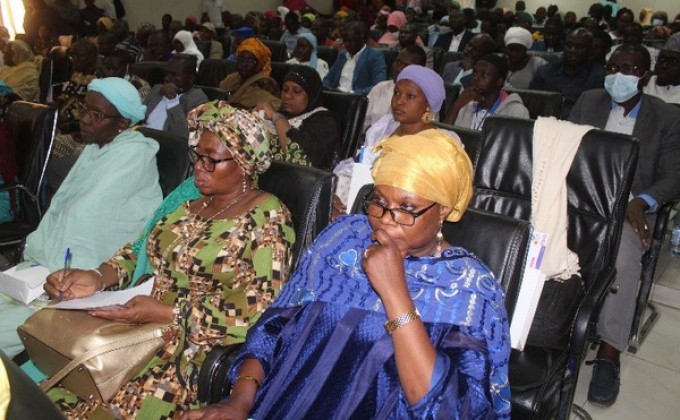Last December, the 5th edition of the Kayes Scientific Days (JSK) took place under the theme: Innovations in reproductive health, challenges and prospects. Here's a look back at this major scientific event in the region.
The JSK came into being in 2010, thanks to the synergy of the Kayes Regional Directorates for Health, Social Development and Solidarity Economy, and for the Promotion of Women, Children and Families, and their partners. The aim of the event is to provide a forum for the exchange and sharing of scientific expertise, research findings and best practices in improving maternal, newborn and child health. The choice of theme this year is explained by the high rates of maternal, neonatal and infant mortality in Mali, according to the Demographic and Health Survey VI, 2018.
More than 110 abstracts were received by the scientific committee covering innovations and diverse themes such as menstrual hygiene management, Maternity Waiting Homes, Assessment of Sexual Reproductive Health and Rights (SRHR) knowledge of young people, Gender-Based Violence (GBV) and child marriages. The Kiladi pilot project, implemented by the Yellen Project, was also presented.
A total of 90 presentations were made (a record) by participants from several regions of Mali, testifying to the growing interest in the JSKs. It is also worth noting the strong participation of women in the presentation of papers and the respect for parity in the chairing and reporting of sessions during this 5th edition.
In June 2019, the Government of Canada committed to increasing its funding to support the health and rights of women and girls around the world, known as the 10-Year Commitment to Global Health and Rights. The Yellen Project, which benefits from this funding through Global Affairs Canada, has actively supported the organization of this event, which is in line with this commitment and demonstrates the importance of international collaboration to improve global health.
A few words about the Yellen project:
The Yellen project "Droit et innovation en santé sexuelle et reproductive dans la région de Kayes au Mali" is a bilateral cooperation project between the governments of Mali and Canada. It is implemented by a Canadian consortium made up of the Unité de santé internationale of the Centre hospitalier de l'Université de Montréal (USI - CHUM) and the Centre d'étude et de coopération internationale (CECI).
The aim of this project is to contribute to the transformation of unequal gender relations with regard to the sexual and reproductive health and rights (SRHR) of women and adolescent girls in seven health districts in the Kayes region (Bafoulabé, Diéma, Nioro, Oussoubidiagna, Sagabari, Séféto and Yélimané). It is based on the hypothesis that increasing the decision-making power of women and adolescent girls to take greater control of their own health will encourage greater demand for quality sexual and reproductive health (SRH) services, including gender-based violence (GBV) and family planning (FP). The project proposes an innovative model of collaboration aimed at harmonizing the work of actors from the health services, civil society, in particular women's groups, and decentralized communities. The Yellen project receives financial support from the Government of Canada through Global Affairs Canada.
This article was originally published on the website of our partner, USI - CHUM de l'Univeristé de Montréal.
